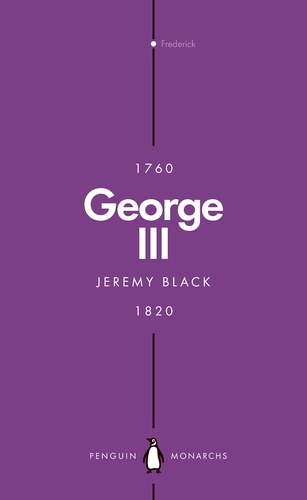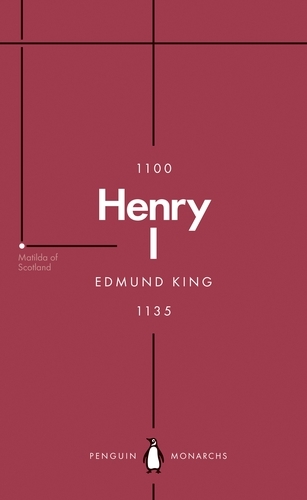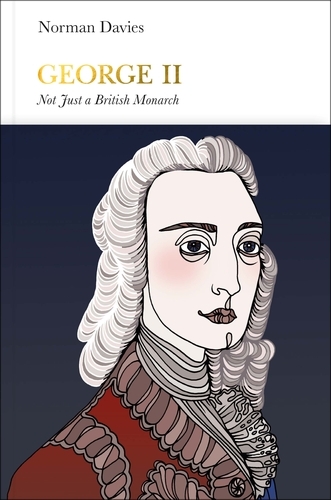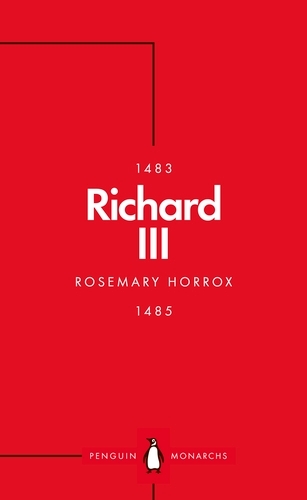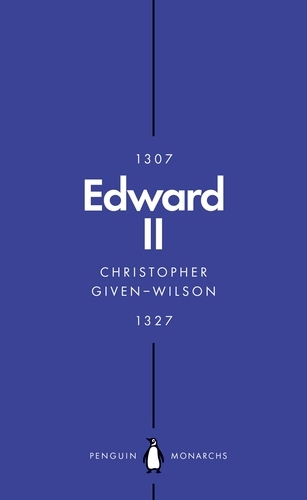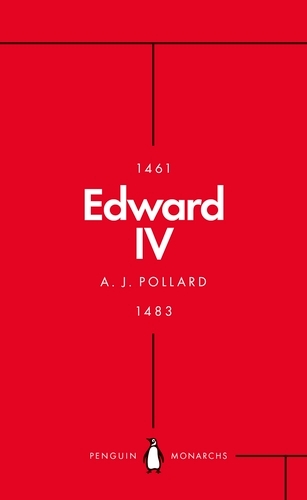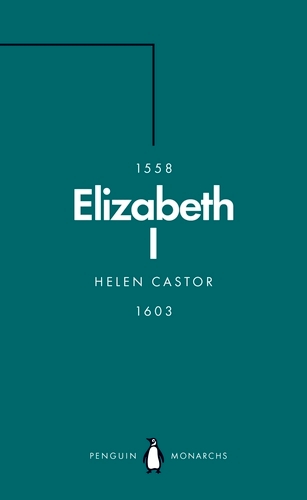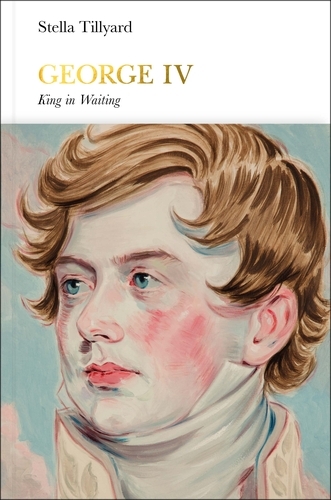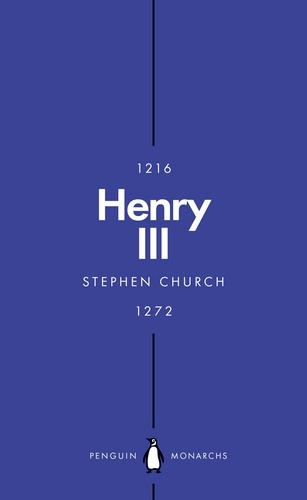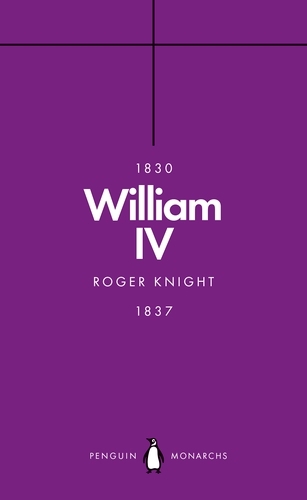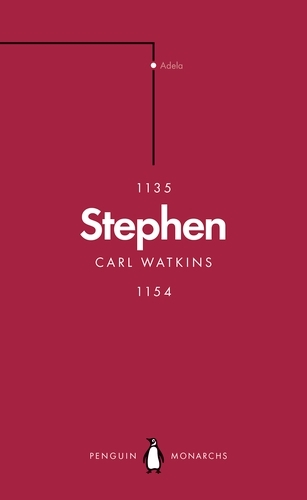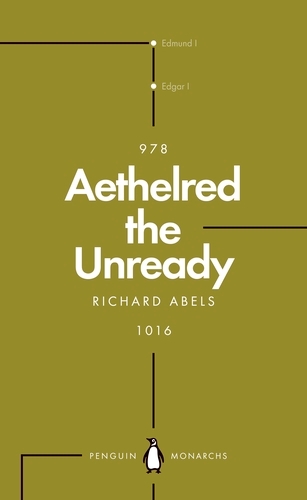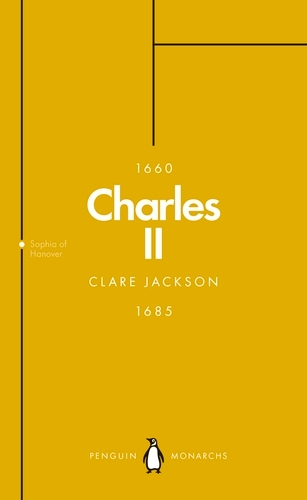Penguin Monarchs
44 books in this series
George III (Penguin Monarchs)
King of Britain for sixty years and the last king of what would become the United States, George III inspired both hatred and loyalty and is now best known for two reasons: as a villainous tyrant for America's Founding Fathers, and for his madness, both of which have been portrayed on stage and screen.
In this concise and penetrating biography, Jeremy Black turns away from the image-making and back to the archives, and instead locates George's life within his age: as a king who faced the loss of key colonies, rebellion in Ireland, insurrection in London, constitutional crisis in Britain and an existential threat from Revolutionary France as part of modern Britain's longest period of war.
Black shows how George III rose to these challenges with fortitude and helped settle parliamentary monarchy as an effective governmental system, eventually becoming the most popular monarch for well over a century. He also shows us a talented and curious individual, committed to music, art, architecture and science, who took the duties of monarchy seriously, from reviewing death penalties to trying to control his often wayward children even as his own mental health failed, and became Britain's longest reigning king.
In this concise and penetrating biography, Jeremy Black turns away from the image-making and back to the archives, and instead locates George's life within his age: as a king who faced the loss of key colonies, rebellion in Ireland, insurrection in London, constitutional crisis in Britain and an existential threat from Revolutionary France as part of modern Britain's longest period of war.
Black shows how George III rose to these challenges with fortitude and helped settle parliamentary monarchy as an effective governmental system, eventually becoming the most popular monarch for well over a century. He also shows us a talented and curious individual, committed to music, art, architecture and science, who took the duties of monarchy seriously, from reviewing death penalties to trying to control his often wayward children even as his own mental health failed, and became Britain's longest reigning king.
Henry I (Penguin Monarchs)
The youngest of William the Conqueror's sons, Henry I (1100-35) was never meant to be king, but he was destined to become one of the greatest of all medieval monarchs, both through his own ruthlessness and intelligence and through the dynastic legacy of his daughter Matilda, who began the Plantagenet line that would rule England until 1485. A self-consciously diligent and thoughtful king, his rule was looked back on as the real post-invasion re-founding of England as a new realm, integrated into the continent, wealthy and stable.
Edmund King's wonderful portrait of Henry shows him as a strikingly charismatic and thoughtful man. His life was dogged by a single great disaster, the death of his teenage heir William in the White Ship disaster. Despite astonishing numbers of illegitimate sons, Henry was now left with only a daughter. This fact would shape the rest of the 12th century and beyond.
Edmund King's wonderful portrait of Henry shows him as a strikingly charismatic and thoughtful man. His life was dogged by a single great disaster, the death of his teenage heir William in the White Ship disaster. Despite astonishing numbers of illegitimate sons, Henry was now left with only a daughter. This fact would shape the rest of the 12th century and beyond.
John (Penguin Monarchs)
King John ruled England for seventeen and a half years. For most of that time he enjoyed, if not popularity, then great wealth and power. Yet to posterity his entire reign has come to be embodied in a single image. Furious, outmanoeuvred, crippled with vice, the King sits at Runnymede sealing or more often (and anachronistically) signing Magna Carta. No matter whether we approach this event as reactionaries wishing that the King would assert himself, as conservatives delighted by the restoration of constitutional 'rights', or as radicals longing for liberty and revolution, Runnymede changes everything in our perception of King John. Seventeen years of history are reduced to a picnic on the banks of the Thames. John is exposed as villainous and pathetic. The people triumph. Tyranny is righted.
Nicholas Vincent's fascinating portrayal of a complex man unpicks the character behind one of England's most despised kings. Was he as evil as legend suggests? Or has he been unfairly misunderstood?
Nicholas Vincent's fascinating portrayal of a complex man unpicks the character behind one of England's most despised kings. Was he as evil as legend suggests? Or has he been unfairly misunderstood?
George II (Penguin Monarchs)
George II, King of Great Britain and Ireland and Elector of Hanover, came to Britain for the first time when he was thirty-one. He had a terrible relationship with his father, George I, which was later paralleled by his relationship to his own son. He was short-tempered and uncultivated, but in his twenty-three-year reign he presided over a great flourishing in his adoptive country - economic, military and cultural - all described with characteristic wit and elegance by Norman Davies. (George II so admired the Hallelujah chorus in Handel's Messiah that he stood while it was being performed - as modern audiences still do.) Much of his attention remained in Hanover and on continental politics, as a result of which he was the last British monarch to lead his troops into battle, at Dettingen in 1744.
Edward the Confessor (Penguin Monarchs)
Edward the Confessor, one of the last kings of Anglo-Saxon England, is in part a figure of myths created in the later medieval period. David Woodman traces the course of his 24-year-long reign through the lens of contemporary sources, from the Anglo-Saxon Chronicle and the Vita Ædwardi Regis to the Bayeux Tapestry, to uncover the fraught and complex politics of his life. Edward was a shrewd politician who, having endured a long period of exile from England in his youth, ascended the throne in 1042 and came to control a highly sophisticated administration. Such was his power in the mid-eleventh century that the late Anglo-Saxon coinage from his reign is the only example in western Europe of a royal monopoly across such a large area.
What we know as 'England' had only relatively recently come into being and Woodman constructs a portrait of an age by untangling the truth from the saintly legend and shows how the events of Edward's reign led, through many twists and turns, to the Norman Conquest.
What we know as 'England' had only relatively recently come into being and Woodman constructs a portrait of an age by untangling the truth from the saintly legend and shows how the events of Edward's reign led, through many twists and turns, to the Norman Conquest.
Richard III (Penguin Monarchs)
No English king has so divided opinion, both during his reign and in the centuries since, more than Richard III.
He was loathed in his own time for the never-confirmed murder of his young nephews, the Princes in the Tower, and died fighting his own subjects on the battlefield. This is the vision of Richard we have inherited from Shakespeare. Equally, he inspired great loyalty in his followers.
In this enlightening, even-handed study, Rosemary Horrox builds a complex picture of a king who by any standard failed as a monarch. He was killed after only two years on the throne, without an heir, and brought such a decisive end to the House of York that Henry Tudor was able to seize the throne, despite his extremely tenuous claim. Whether Richard was undone by his own fierce ambitions, or by the legacy of a Yorkist dynasty which was already profoundly dysfunctional, the end result was the same: Richard III destroyed the very dynasty that he had spent his life so passionately defending.
He was loathed in his own time for the never-confirmed murder of his young nephews, the Princes in the Tower, and died fighting his own subjects on the battlefield. This is the vision of Richard we have inherited from Shakespeare. Equally, he inspired great loyalty in his followers.
In this enlightening, even-handed study, Rosemary Horrox builds a complex picture of a king who by any standard failed as a monarch. He was killed after only two years on the throne, without an heir, and brought such a decisive end to the House of York that Henry Tudor was able to seize the throne, despite his extremely tenuous claim. Whether Richard was undone by his own fierce ambitions, or by the legacy of a Yorkist dynasty which was already profoundly dysfunctional, the end result was the same: Richard III destroyed the very dynasty that he had spent his life so passionately defending.
Edward II (Penguin Monarchs)
The reign of Edward II (1307-27) was a serious of total disasters, making him unsuccessful to an extent almost without equal. At some level Edward simply did not inspire trust or respect. He failed to be kingly, preferring ditching and cart-racing to jousting and falconry. He relied on favourites and seemed to alienate even the most natural supporters of the throne. His reign was convulsed by rebellion and attempts to reform the king's behaviour. In an attempt to throw off the spectre of his regal, soldierly father, Edward I, he invaded Scotland and suffered catastrophic defeat at the Battle of Bannockburn. After twenty ruinous years, betrayed and abandoned by most of his nobles and by his wife and her lover, Edward was imprisoned in Berkeley Castle where he was murdered.
Christopher Given-Wilson's remarkable book gives a glimpse into the abyss: the terrors of kingship - where royal authority is based around strict succession by the eldest son, what happens when that eldest son is incapable of doing the job?
Christopher Given-Wilson's remarkable book gives a glimpse into the abyss: the terrors of kingship - where royal authority is based around strict succession by the eldest son, what happens when that eldest son is incapable of doing the job?
Edward IV (Penguin Monarchs)
In 1461 Edward earl of March, an able, handsome, and charming eighteen-year old, usurped the English throne from his feeble Lancastrian predecessor Henry VI. Ten years on, following outbreaks of civil conflict that culminated in him losing, then regaining the crown, he had finally secured his kingdom. The years that followed witnessed a period of rule that has been described as a golden age: a time of peace and economic and industrial expansion, which saw the establishment of a style of monarchy that the Tudors would later develop. Yet, argues A. J. Pollard, Edward, who was drawn to a life of sexual and epicurean excess, was a man of limited vision, his reign remaining to the very end the narrow rule of a victorious faction in civil war. Ultimately, his failure was dynastic: barely two months after his death in April 1483, the throne was usurped by Edward's youngest brother, Richard III.
Elizabeth I (Penguin Monarchs)
In the popular imagination, as in her portraits, Elizabeth I is the image of monarchical power. The Virgin Queen ruled over a Golden Age: the Spanish Armada was defeated; English explorers reached the ends of the earth; a new Church of England rose from the ashes of past conflict; the English Renaissance bloomed in the genius of Shakespeare, Spenser and Sidney. But the image is also armour.
In this illuminating account of Elizabeth's reign, Helen Castor shows how England's iconic queen was shaped by profound and enduring insecurity-an insecurity which was both a matter of practical political reality and personal psychology. From her precarious upbringing at the whim of a brutal, capricious father and her perilous accession after his death, to the religious division that marred her state and the failure to marry that threatened her line, Elizabeth lived under constant threat. But, facing down her enemies with a compellingly inscrutable public persona, the last and greatest of the Tudor monarchs would become a timeless, fearless queen.
In this illuminating account of Elizabeth's reign, Helen Castor shows how England's iconic queen was shaped by profound and enduring insecurity-an insecurity which was both a matter of practical political reality and personal psychology. From her precarious upbringing at the whim of a brutal, capricious father and her perilous accession after his death, to the religious division that marred her state and the failure to marry that threatened her line, Elizabeth lived under constant threat. But, facing down her enemies with a compellingly inscrutable public persona, the last and greatest of the Tudor monarchs would become a timeless, fearless queen.
George IV (Penguin Monarchs)
George IV spent most of his life waiting to become king: as a pleasure-loving and rebellious Prince of Wales during the sixty-year reign of his father, George III, and for ten years as Prince Regent, when his father went mad.
'The days are very long when you have nothing to do' he once wrote plaintively, but he did his best to fill them with pleasure - women, art, food, wine, fashion, architecture. He presided over the creation of the Regency style, which came to epitomise the era, and he was, with Charles I, the most artistically literate of all our kings. Yet despite his life of luxury and indulgence, George died alone and unmourned.
Stella Tillyard has not written a judgemental book, but a very human and enjoyable one, about this most colourful of all British kings.
'The days are very long when you have nothing to do' he once wrote plaintively, but he did his best to fill them with pleasure - women, art, food, wine, fashion, architecture. He presided over the creation of the Regency style, which came to epitomise the era, and he was, with Charles I, the most artistically literate of all our kings. Yet despite his life of luxury and indulgence, George died alone and unmourned.
Stella Tillyard has not written a judgemental book, but a very human and enjoyable one, about this most colourful of all British kings.
Henry III (Penguin Monarchs)
Henry III was a medieval king whose long reign continues to have a profound impact on us today. He was on the throne for 56 years and during this time England was transformed from being the private play-thing of a French speaking dynasty into a medieval state in which the king answered for his actions to an English parliament, which emerged during Henry's lifetime.
Despite Henry's central importance for the birth of parliament and the development of a state recognisably modern in many of its institutions, it is Henry's most vociferous opponent, Simon de Montfort, who is in many ways more famous than the monarch himself.
Henry is principally known today as the driving force behind the building of Westminster Abbey, but he deserves to be better understood for many reasons - as Stephen Church's sparkling account makes clear.
Despite Henry's central importance for the birth of parliament and the development of a state recognisably modern in many of its institutions, it is Henry's most vociferous opponent, Simon de Montfort, who is in many ways more famous than the monarch himself.
Henry is principally known today as the driving force behind the building of Westminster Abbey, but he deserves to be better understood for many reasons - as Stephen Church's sparkling account makes clear.
William IV (Penguin Monarchs)
William IV, 'the Sailor King', is best known for his naval career and for living for twenty years with the actress Mrs Jordan, with whom he had ten children. Knight's book shows that William was pretty much a disaster in whatever field he found himself.
Stephen (Penguin Monarchs)
Known as 'the anarchy', the reign of Stephen (1135-1141) saw England plunged into a civil war that illuminated the fatal flaw in the powerful Norman monarchy, that without clear rules ordering succession, conflict between members of William the Conqueror's family were inevitable. But there was another problem, too: Stephen himself.
With the nobility of England and Normandy anxious about the prospect of a world without the tough love of the old king Henry I, Stephen styled himself a political panacea, promising strength without oppression. As external threats and internal resistance to his rule accumulated, it was a promise he was unable to keep. Unable to transcend his flawed claim to the throne, and to make the transition from nobleman to king, Stephen's actions betrayed uneasiness in his role, his royal voice never quite ringing true.
The resulting violence that spread throughout England was not, or not only, the work of bloodthirsty men on the make. As Watkins shows in this resonant portrait, it arose because great men struggled to navigate a new and turbulent kind of politics that arose when the king was in eclipse.
With the nobility of England and Normandy anxious about the prospect of a world without the tough love of the old king Henry I, Stephen styled himself a political panacea, promising strength without oppression. As external threats and internal resistance to his rule accumulated, it was a promise he was unable to keep. Unable to transcend his flawed claim to the throne, and to make the transition from nobleman to king, Stephen's actions betrayed uneasiness in his role, his royal voice never quite ringing true.
The resulting violence that spread throughout England was not, or not only, the work of bloodthirsty men on the make. As Watkins shows in this resonant portrait, it arose because great men struggled to navigate a new and turbulent kind of politics that arose when the king was in eclipse.
Aethelred the Unready (Penguin Monarchs)
There is a long tradition of cheering on the major monarchs of England, generally warriors such as Alfred the Great, William the Conqueror and Richard the Lionheart. But there is an argument that the more interesting monarchs are the ones who through their own fault or through having to live through terrible times, show the limits of human action and the degree to which political life can go completely wrong.
In his fascinating new book in the Penguin Monarchs series, Richard Abels examines the long and troubled reign of Aethelred II the 'Unraed', the 'Ill-Advised'. It is characteristic of Aethelred's reign that its greatest surviving work of literature, the poem The Battle of Maldon, should be a record of heroic defeat. Perhaps no ruler could have stemmed the encroachment of wave upon wave of Viking raiders, but Aethelred will always be associated with that failure.
In his fascinating new book in the Penguin Monarchs series, Richard Abels examines the long and troubled reign of Aethelred II the 'Unraed', the 'Ill-Advised'. It is characteristic of Aethelred's reign that its greatest surviving work of literature, the poem The Battle of Maldon, should be a record of heroic defeat. Perhaps no ruler could have stemmed the encroachment of wave upon wave of Viking raiders, but Aethelred will always be associated with that failure.
Athelstan (Penguin Monarchs)
The formation of England happened against the odds - the division of the country into rival kingdoms, the assaults of the Vikings, the precarious position of the island on the edge of the known world. But King Alfred ensured the survival of Wessex, his son Eadweard expanded it, and his grandson Æthelstan finally united Mercia and Wessex, conquered Northumbria and became Rex totius Britanniae.
Tom Holland recounts this extraordinarily exciting story with relish and drama. We meet the great figures of the age, including Alfred and his daughter Æthelflæd, 'Lady of the Mercians', who brought Æthelstan up at the Mercian court. At the end of the book we understand the often confusing history of the Anglo-Saxon kings better than ever before.
Tom Holland recounts this extraordinarily exciting story with relish and drama. We meet the great figures of the age, including Alfred and his daughter Æthelflæd, 'Lady of the Mercians', who brought Æthelstan up at the Mercian court. At the end of the book we understand the often confusing history of the Anglo-Saxon kings better than ever before.
Charles II (Penguin Monarchs)
Charles II has always been one of the most instantly recognisable British kings - both in his physical appearance, disseminated through endless portraits, prints and pub signs, and in his complicated mix of lasciviousness, cynicism and luxury. His father's execution and his own many years of exile made him a guarded, curious, unusually self-conscious ruler. He lived through some of the most striking events in the national history - from the Civil Wars to the Great Plague, from the Fire of London to the wars with the Dutch.
Clare Jackson's marvellous book takes full advantage of its irrepressible subject.
Clare Jackson's marvellous book takes full advantage of its irrepressible subject.
